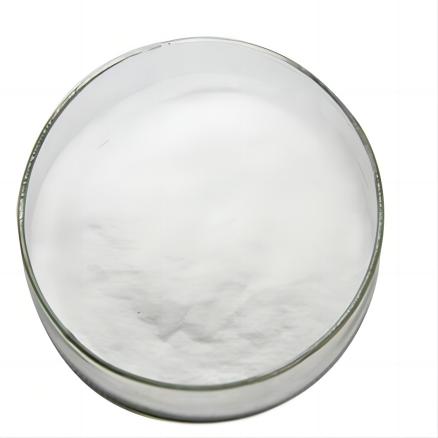Vitamin B5, also known as pantothenic acid, is an essential nutrient that supports energy metabolism and the synthesis of coenzyme A.


Vitamin B5 CAS #79-83-4
Vitamin B5, also known as pantothenic acid, is an essential nutrient that supports energy metabolism and the synthesis of coenzyme A.
Vitamin B5 (Pantothenic Acid) is typically a white or off-white crystalline powder. It is odorless or may have a slight characteristic smell. Its primary functions include supporting the synthesis of coenzyme A, which is essential for energy metabolism, and playing a key role in the production of hormones, red blood cells, and neurotransmitters. It also promotes skin health and wound healing.
Functions and Applications:
1.Energy Metabolism: Niacin is essential for converting carbohydrates, fats, and proteins into usable energy. It serves as a coenzyme in several metabolic reactions, including those involved in glycolysis, the citric acid cycle, and oxidative phosphorylation.
2.DNA Repair and Synthesis: Niacin is involved in DNA repair mechanisms and the synthesis of DNA and RNA, the genetic materials in cells. This function is important for maintaining the integrity of the genome and supporting proper cell division and growth.
3.Nervous System Function: Niacin is necessary for the proper functioning of the nervous system. It supports the synthesis of neurotransmitters, which are chemical messengers that transmit signals between nerve cells. Adequate niacin intake may help support cognitive function and overall nervous system health.
4.Cholesterol Management: Niacin has lipid-modifying effects, including lowering levels of low-density lipoprotein (LDL) cholesterol and triglycerides, while increasing levels of high-density lipoprotein (HDL) cholesterol. These effects make niacin a useful adjunctive therapy for managing dyslipidemia and reducing the risk of cardiovascular disease.
5.Skin Health: Niacin can have beneficial effects on skin health. It helps maintain the integrity of the skin barrier, supports moisture retention, and regulates skin cell turnover. Topical niacinamide (a form of niacin) is used in skincare products for its moisturizing, anti-inflammatory, and skin-brightening properties.
6.Vasodilation: Niacin promotes vasodilation, the widening of blood vessels, which can improve blood flow and circulation. This property is utilized in the treatment of certain cardiovascular conditions, such as peripheral vascular disease.
Our professional sales team are waiting for your consultation.